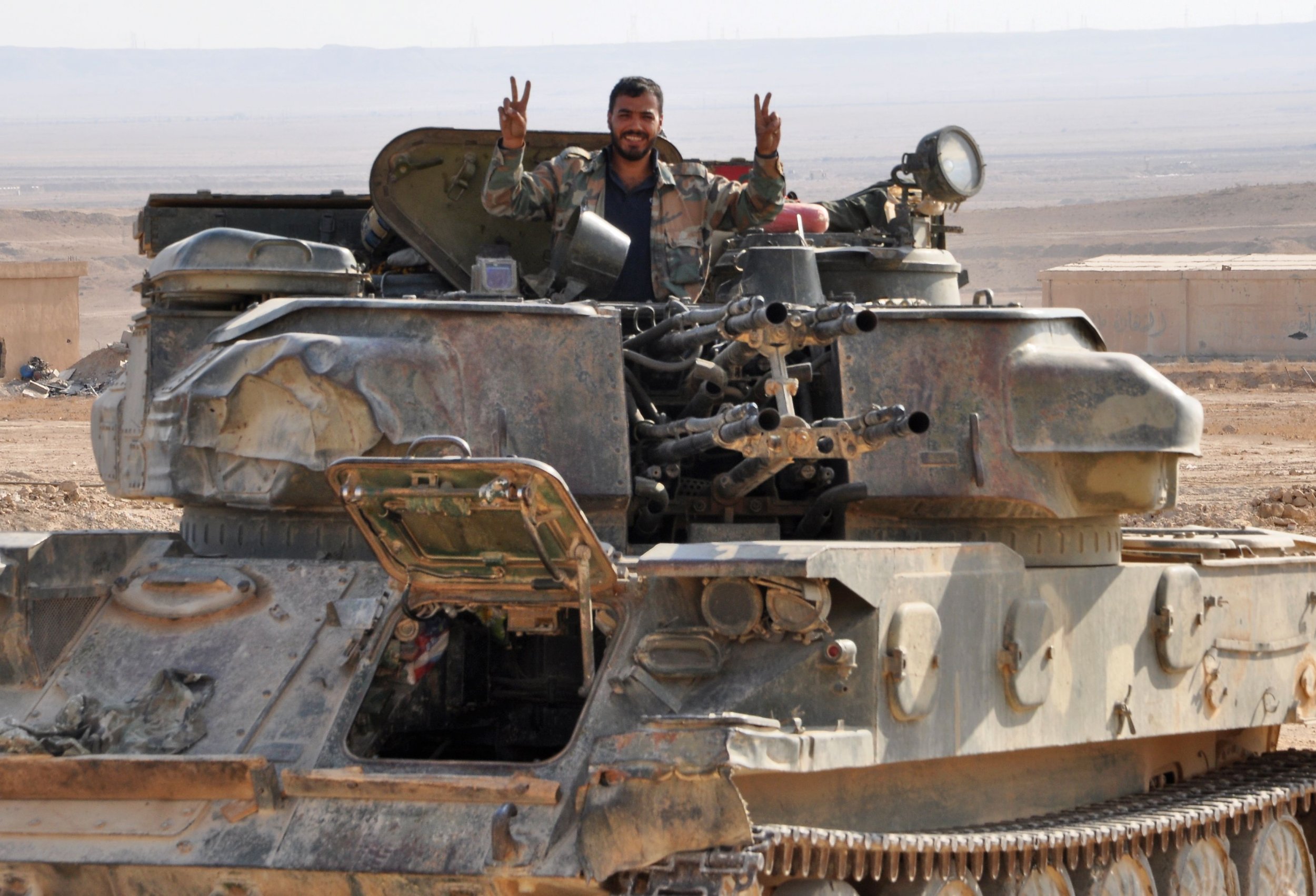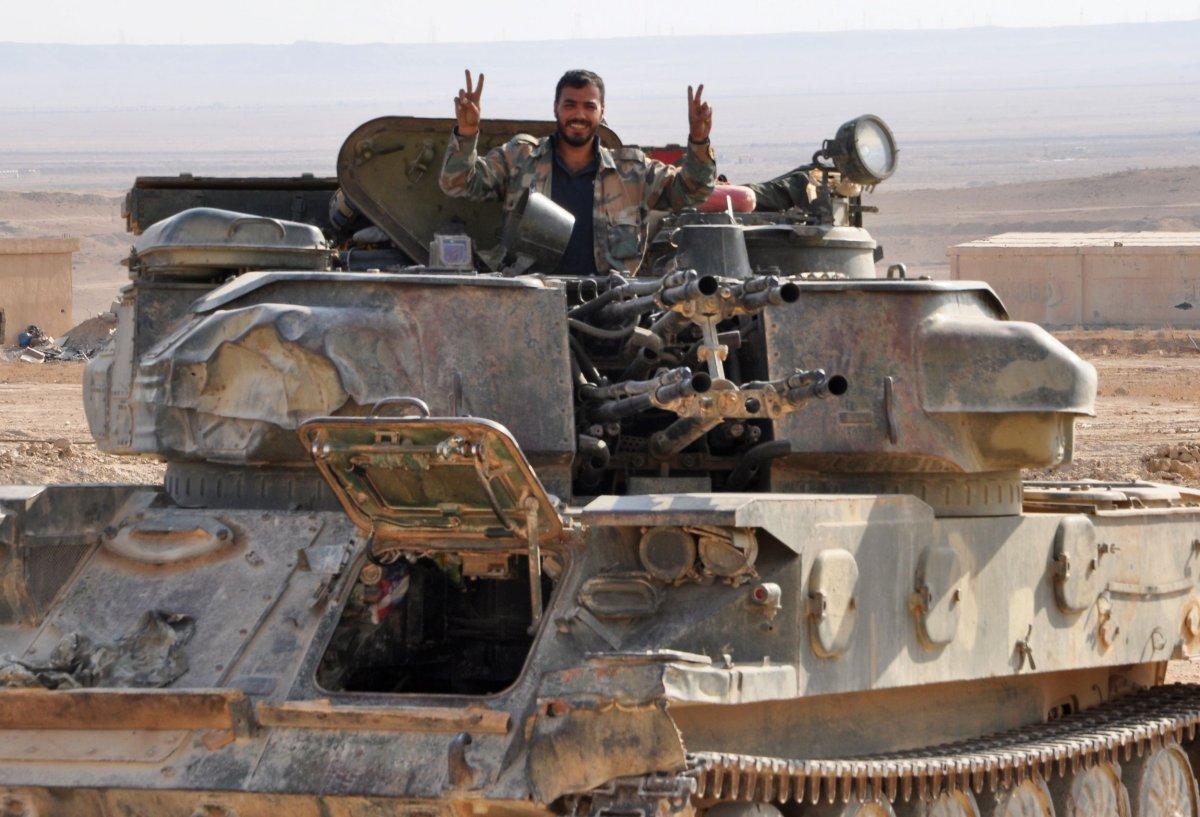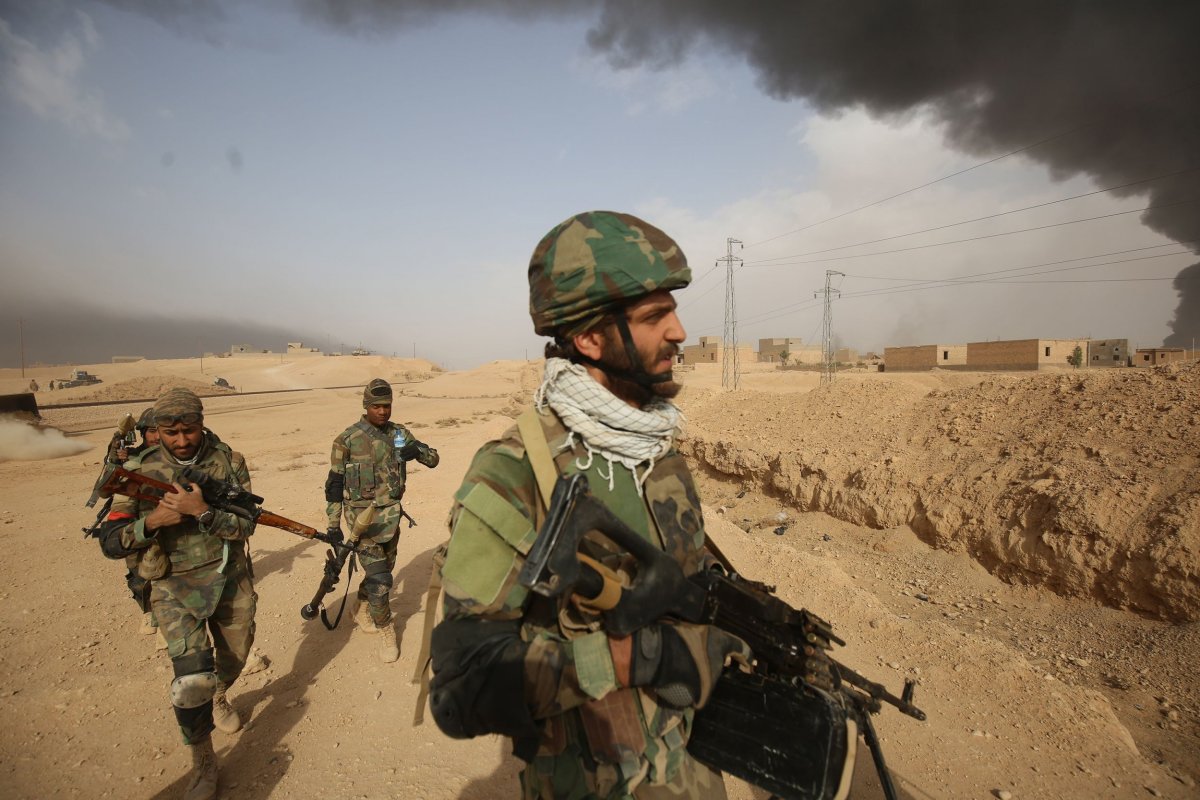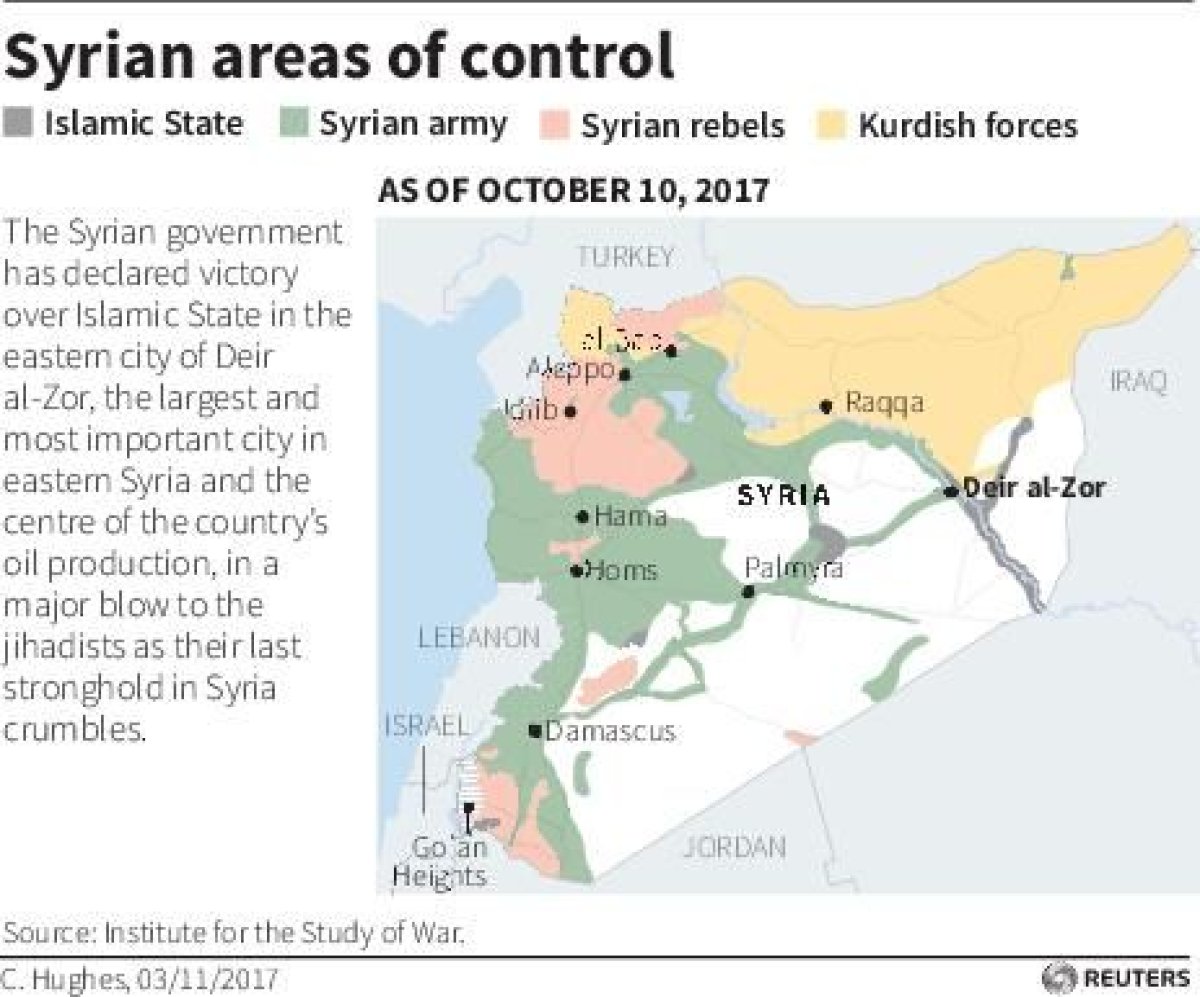
The long-anticipated downward spiral of the Islamic State militant group (ISIS) has accelerated in recent weeks, and the loss of two more major points in Iraq and Syria on Friday has all but sealed the jihadis' fate, leaving them trapped between the two countries over which they once held significant power.
The Syrian military announced Friday that its troops had completely retaken what was ISIS's final major population center, the eastern city of Deir Ezzor. Syrian troops, backed by Russia, Iran and various pro-government militias, managed to break a three-year siege on the city in September after launching a cross-country offensive to retake swaths of central and eastern Syria under jihadi control. After Deir Ezzor, the last known command post for ISIS's leadership, and the nearby city of Mayadeen were retaken, ISIS is trapped in the border town of Al-Bukamal between advancing Syrian and Iraqi forces.
Related: How the U.S. lost the war in Syria to Russia and Iran
"The liberation of the city of Deir Ezzor constitutes the final stage in the ultimate elimination of the terrorist ISIS organization in Syria, especially as it acted as the main headquarters of the organization's leadership," the Syrian Ministry of Defense said in a statement.
"With its loss, [ISIS] has completely lost its ability to lead the terrorist operations of its groups that have become isolated and encircled in the eastern countryside of the city," it added.

Syria's armed forces and other fighters battling in support of Syrian President Bashar al-Assad are not alone in helping dislodge ISIS from the embattled nation. The U.S.-backed Syrian Democratic Forces, a mostly Kurdish alliance of Arabs and ethnic minorities, defeated ISIS in its de facto capital of Raqqa, in northern Syria, last month and have made gains in Deir Ezzor, as well.
The U.S. has criticized Russia's support for Assad, but the Pentagon's Kurdish allies have reportedly entered talks with the Syrian government to swap Kurd-controlled oil fields in Deir Ezzor for greater political autonomy in the north and a secure spot in the proposed multiconfessional congress of Syrian opposition parties, according to Reuters. The Syrian government and the Syrian Kurds' political leadership both oppose rebels and jihadis trying to oust Assad, but still differ on the political landscape of a post-war Syria.
As Syrian troops claimed their latest victory in Deir Ezzor, another high-stakes battle raged across the border. The Iraqi military and Iran-backed, mostly Shiite Muslim Popular Mobilization Forces, known as Al-Hashd Al-Shaabi, rapidly broke through ISIS defense lines, pushing the militants to the Syrian border and ultimately retaking the Qaim crossing on Friday.

Iraq forces reportedly sent negotiators to the Obeidi area of Qaim to inform ISIS fighters that "they must lay down and abandon their arms, respect the rights of the citizens they have taken prisoner and that their only option was to either die or surrender at the hands of our heroic forces," according to a statement by the Iraqi Ministry of Defense.
Iraq's win in Qaim is the latest and one of the most significant since ISIS lost the northern city of Mosul, by far the largest to come under the group's control. After what the U.S. military described as the most intense urban assault since World War II, ISIS lost the city in July to an alliance of Iraqi military, Popular Mobilization Forces, Kurdish militias and a U.S.-led coalition. This coalition, however, has largely collapsed as Iraq, Iran and the U.S. opposed a controversial Kurdish referendum for independence that has since forced longtime Iraqi Kurdish President Masoud Barzani to resign.
Qaim, considered one of the most important points along the 372-mile border between the two war-torn countries, lies less than two-dozen miles from the ISIS-held town of Al-Bukamal in Syria. Syrian troops were at a similar distance, around 18 miles, from Al-Bukamal and have begun their drive toward the final ISIS-controlled town, according to U.S. coalition sources cited by Agence France-Presse.

Russia assisted its Syrian allies by bombarding ISIS targets near Al-Bukamal with submarine-launched supersonic Kalibr cruise missiles and airstrikes by various warplanes, the Russia's Ministry of Defense said. The U.S.-led coalition on Thursday also conducted airstrikes on ISIS positions near Al-Bukamal, Deir Ezzor and in ISIS-held territory in Iraq.
Now relegated to collapsing pockets of territory in Iraq and Syria, ISIS controlled about half of the two nations at its height in 2014. The group evolved out of Al-Qaeda in Iraq after the U.S. overthrow of Iraqi President Saddam Hussein in 2003, and it developed during the subsequent occupation. It took advantage of unrest that began in neighboring Syria in 2011 to spread, and its affiliates continue to hold territory in North Africa, Afghanistan and the Philippines, as well.
Uncommon Knowledge
Newsweek is committed to challenging conventional wisdom and finding connections in the search for common ground.
Newsweek is committed to challenging conventional wisdom and finding connections in the search for common ground.
About the writer
Based in his hometown of Staten Island, New York City, Tom O'Connor is an award-winning Senior Writer of Foreign Policy ... Read more
To read how Newsweek uses AI as a newsroom tool, Click here.








